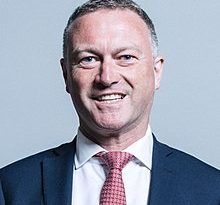Tim Loughton – 2023 Speech on the Budget
The speech made by Tim Loughton, the Conservative MP for East Worthing and Shoreham, in the House of Commons on 20 March 2023.
I support the Budget. More importantly, the markets seem to support it as well. Stability and balance are the hallmarks of what the Chancellor has achieved, and I congratulate him on that.
Mr David Davis (Haltemprice and Howden) (Con)
Will my hon. Friend give way?
Tim Loughton
If my right hon. Friend will forgive me, so many other people want to speak that it would be unfair if I took interventions.
With six minutes, and with a Budget containing so many measures, it is difficult to know what to speak about, but I want to speak briefly about children, the environment and booze—not necessarily at the same time. I very much welcome the Secretary of State’s opening remarks and her concentration on the importance of AI. Even though some of us may not fully understand all of its implications, it is absolutely where we need to grow our economy.
The £20 billion of investment in carbon capture is huge and vital. It is a vital component of our target to get to net zero. We cannot get everything not to release carbon, but we can have ways of mitigating emissions to bring us to our net zero target—hopefully sooner than 2050. It is slightly churlish of the hon. Member for Glasgow North West (Carol Monaghan), who spoke for the SNP, to say that if something is not in Scotland it does not really count. Climate change is no respecter of any border, let alone that between England and Scotland.
I absolutely welcome the Budget’s huge implications for investment in R&D, which is really important. I also absolutely welcome the freezing of fuel duty for the 13th year in a row, which will mean £200 to the average driver.
There are lots of little things in the Budget that will have a big impact, such as the help for swimming pools and leisure centres, which were hit badly during the pandemic and have now been hit by energy costs. That will be a lifeline and it will help the health of our constituents. The measure on energy prepayment meters was long overdue; it was absurd and immoral that those least able to pay should be penalised and pay that much more for using prepayment meters. Thirty million pounds has been allocated for additional veterans’ services, and there is £10 million to help with suicide prevention—a hidden illness that has a huge impact on many of our constituents and their families.
If I may talk briefly about children, I remain concerned —as I would, being a former children’s Minister—that all the emphasis has been on adult social care and not enough has been on children’s social care, where it is estimated there is still a shortfall of some £1.6 billion. We need to do something about that, because over 80% of our interventions on children in the care system and those coming into the care system are late interventions rather than preventive early interventions, which is a big change from what went on some years before.
We need to invest in our social worker workforce. This afternoon, I have been hosting the Social Worker of the Year awards, and some of the most remarkable social workers from around the country have been to Parliament to receive their awards. They are the fourth emergency service and we need much better workforce planning, as we do in the NHS, to make sure that we not only recruit more social workers, but keep them. It is a false economy not to be doing that.
I welcome the many good measures on children, particularly on children in care, but will the Chancellor consider what we can do to provide free bus travel for all care leavers aged between 18 and 25, for whom the cost of a bus fare to get to work or education is prohibitive? Will he also consider a national programme to allow care leavers to access a rent deposit as part of their benefits, since they find it harder than many to access accommodation?
On childcare, which was one of the most significant parts of the Budget, I absolutely support the measures that were announced. As Coram Family and Childcare puts it,
“the introduction of 30 hours childcare for children from 9 months old to three years old…will make a huge difference for families currently struggling with high costs”.
I welcome that, but there are question marks around sufficiency and shortages in the childcare available; currently only half of local authorities have sufficient childcare for children aged under two and less than half have enough childcare for parents working full time. With these generous measures on childcare, there is more we need to do to make sure that people with the appropriate skills are there to provide it.
I welcome the wraparound childcare available through schools from 8 am to 6 pm, which will make a real difference to parents’ ability to go to jobs and make a meaningful contribution. However, there is a problem in that only 25% of local authorities have enough after-school childcare for children aged five to 11 and the figure is even lower for those aged 12 to 14. Again, there are serious question marks about capacity, which I am sure the Chancellor will answer.
There is more I could say about children but, turning to the environment, insulating homes reduces energy waste and keeps people warmer, while lowering bills permanently. We need further public investment in insulating fuel-poor homes, and we need to create new tax incentives for owner-occupiers to do more to improve the energy efficiency of their homes—as is the case in other European countries, where it is reflected in council tax banding and other up-front fees.
Finally, on beer, the Chancellor’s measures to ensure that tax on draught beer sold in pubs does not increase are great and will save the sector around £70 million a year. However, the British Beer and Pub Association, which is already seeing its members hit by an energy crisis and the weight of debt build-up over years, says that there is a 10% increase in the duty on non-draught beers—60% of all beer sales. Can we aim for a level playing field for our beer and pub industry, which has been particularly hit during the energy crisis and the pandemic? What is in the Budget is really good, but we could do a little bit more.


